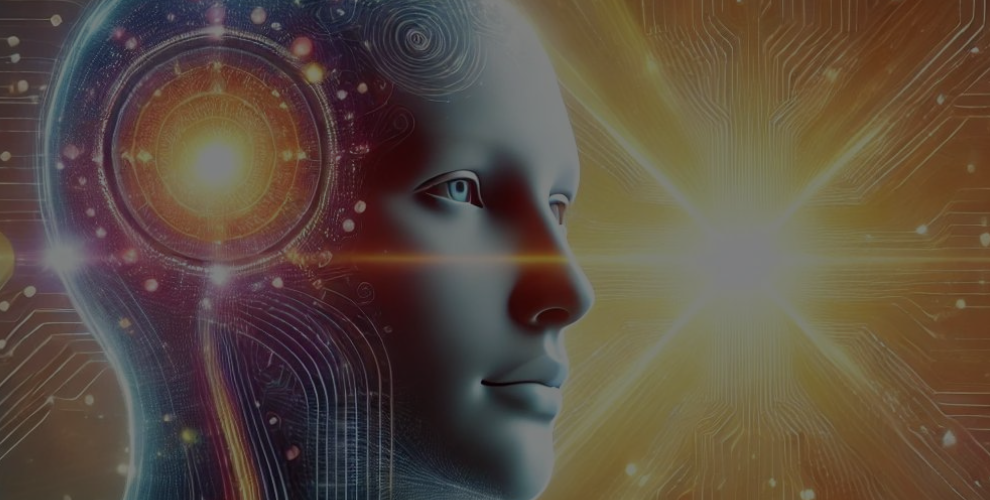
Struggling with Emotions? Emotional Intelligence Can Help
Table of Contents
Introduction
Welcome to WikiGlitz—your trusted source for insights into the latest technological advancements.
In today’s blog, we’ll explore the fascinating intersection of Emotional Intelligence (EI) and Artificial Intelligence (AI) and how these innovations can help you manage emotions more effectively.
The capacity to identify, comprehend, and regulate both our own and other people’s emotions is known as emotional intelligence.
As we navigate an increasingly digital world, the integration of emotional intelligence into AI systems is becoming more significant.
These AI systems are being designed to understand human emotions, providing support in ways that were once thought impossible.
Whether it’s enhancing customer service or aiding in personal development, Emotional Intelligence in AI is paving the way for a more emotionally aware and responsive future.
Key Takeaways:
- Emotional Intelligence in AI is transforming how technology interacts with human emotions.
- Understanding emotions through AI can lead to better emotional management and decision-making.
- The role of AI in emotional intelligence is expanding, offering new tools and training methods.
What is Emotional Intelligence?
Emotional intelligence, often abbreviated as EI, is a concept that has gained widespread recognition for its role in personal and professional success. It encompasses several key components:
- Self-Awareness: The ability to recognize and understand your own emotions and how they affect your thoughts and behavior.
- Self-Regulation: The ability to manage your emotions, especially in stressful situations, and to remain in control and adaptable.
- Motivation: A passion for work that goes beyond external rewards, driven by inner ambition and a strong sense of purpose.
- Empathy: The capacity to comprehend and experience another person’s emotions, which promotes the development of solid interpersonal bonds.
- Social Skills: The ability to manage relationships effectively, to communicate clearly, and to inspire and influence others.
Emotional intelligence is crucial in various aspects of life, including leadership, teamwork, conflict resolution, and personal relationships.
It allows individuals to navigate social complexities, make informed decisions, and achieve positive outcomes both at work and in their personal lives.
The Point Where Artificial and Emotional Intelligence Collide
Artificial Intelligence and Emotional Intelligence are two fields that, at first glance, may seem worlds apart.
However, recent advancements in technology have brought these two concepts together, leading to the development of AI systems that can understand and respond to human emotions.
Artificial Intelligence and Emotional Intelligence are converging in ways that enhance human-computer interaction. For example, AI-powered virtual assistants and customer service bots are now being equipped with the ability to detect emotional cues in speech and text. This allows them to provide more personalized and empathetic responses, improving the user experience.
The integration of emotional intelligence into AI is particularly important in areas such as customer service, where understanding and responding to a customer’s emotional state can significantly impact satisfaction and loyalty. Moreover, AI systems with emotional intelligence are being used in mental health support, offering a new way to provide emotional care and assistance.
How AI Can Understand Emotions
The ability of AI to understand and interpret human emotions is rooted in advanced technologies like facial recognition, voice analysis, and natural language processing (NLP). These technologies work together to analyze various emotional cues and provide AI systems with the data needed to respond appropriately.
- Facial Recognition: AI systems can analyze facial expressions to determine a person’s emotional state. By assessing factors such as the movement of facial muscles, AI can identify emotions like happiness, sadness, anger, or surprise.
- Voice Analysis: The tone, pitch, and speed of speech can reveal a lot about a person’s emotional state. AI uses voice analysis to detect these subtle changes and understand whether a person is feeling stressed, calm, excited, or frustrated.
- Natural Language Processing (NLP): NLP allows AI to understand the context and sentiment behind words. By analyzing the language used in text or speech, AI can gauge the emotions behind the communication and tailor its responses accordingly.
These technologies are combined to create AI systems that can engage in emotionally intelligent interactions with humans.
For instance, an AI chatbot equipped with these capabilities can recognize when a customer is upset and offer a more empathetic and supportive response, thereby improving the overall experience.
Benefits of Emotional Intelligence in AI
Emotional intelligence in AI offers numerous benefits across various fields, from customer service to personal development. By integrating emotional intelligence into AI, we can create more empathetic, responsive, and effective AI systems that can significantly enhance human experiences.
- AI Tools for Emotional Intelligence: There are several AI tools designed specifically to assess and improve emotional intelligence. These tools are used in training programs that help individuals develop better emotional awareness and interpersonal skills. For example, AI-powered platforms can simulate real-life scenarios where users practice managing their emotions and responding to others.
- AI and Human Emotions: One of the most significant benefits of emotional intelligence in AI is its ability to improve interactions with humans. In customer service, for instance, AI chatbots equipped with emotional intelligence can recognize when a customer is frustrated or upset and adjust their responses to be more empathetic and helpful. This leads to a better customer experience and can increase customer satisfaction and loyalty.
- Emotional Intelligence Training with AI: AI is also being used as a training tool to help individuals and teams improve their emotional intelligence. By analyzing user interactions and providing real-time feedback, AI can help people develop better emotional awareness, self-regulation, and empathy. This type of training is particularly valuable in corporate settings, where emotional intelligence is critical for leadership, teamwork, and communication.
Can AI Develop Emotional Intelligence?
The question of whether AI can truly develop emotional intelligence like humans is both fascinating and complex.
Currently, AI systems can simulate aspects of emotional intelligence by recognizing and responding to emotional cues. However, they do not experience emotions as humans do.
- Current Capabilities: AI systems today can recognize emotions through data analysis and machine learning. They can interpret facial expressions, analyze speech patterns, and understand sentiment in text. These abilities allow AI to mimic emotional intelligence to a certain extent, making them useful in various applications where emotional understanding is beneficial.
- Ethical Considerations: The development of emotional intelligence in AI raises several ethical questions. For instance, there are concerns about privacy and data security, as AI systems often rely on analyzing personal data to detect emotions. Additionally, there is the question of how much we should rely on AI for emotional support, given that AI cannot genuinely empathize with human experiences.
- Limitations: Despite advancements, there are limitations to how much AI can develop emotional intelligence. True emotional intelligence involves not only understanding emotions but also experiencing and processing them in a way that influences behavior and decision-making. AI lacks the consciousness and subjective experiences that are integral to human emotional intelligence.
Emotional Intelligence in Machine Learning
Emotional intelligence is increasingly being integrated into machine learning algorithms, enabling AI systems to learn and improve their emotional responses over time.
This integration is transforming how AI interacts with humans, making these interactions more natural and effective.
- Training AI to Understand Emotions: In machine learning, AI systems are trained on vast datasets that include emotional cues such as facial expressions, voice tones, and language patterns. These datasets allow AI to recognize and categorize different emotions, improving its ability to respond appropriately in various situations.
- Impact of AI on Emotional Intelligence: The integration of emotional intelligence in machine learning has both positive and negative impacts. On the positive side, it enhances the ability of AI systems to engage in meaningful interactions with humans, providing support in areas like customer service, education, and mental health. On the negative side, there is the risk of over-reliance on AI for emotional understanding, which could diminish human empathy and social skills over time.
- Continuous Learning: Machine learning allows AI systems to continuously improve their emotional intelligence. As AI interacts with more humans and processes more emotional data, it can refine its responses and become more adept at understanding complex emotional situations.
AI’s Place in the Development of Emotional Intelligence
AI is playing an increasingly important role in the development of emotional intelligence, particularly in educational and corporate settings.
By leveraging AI tools, individuals and organizations can enhance their emotional intelligence, leading to improved communication, leadership, and teamwork.
- AI in Education: In educational settings, AI is being used to help students develop emotional intelligence from a young age. For example, AI-driven programs can teach students how to recognize and manage their emotions, as well as understand and empathize with others. These programs often use interactive simulations and real-time feedback to provide a personalized learning experience.
- Corporate Training: In the corporate world, AI is being utilized to train employees and leaders in emotional intelligence. Companies are increasingly recognizing the importance of emotional intelligence in leadership and team dynamics. AI tools can provide tailored training programs that help employees improve their self-awareness, self-regulation, and social skills, leading to more cohesive and effective teams.
- Case Studies: Several companies have successfully integrated AI into their emotional intelligence training programs. For instance, a multinational corporation used an AI-powered platform to provide emotional intelligence training to its global workforce. The platform used real-time feedback and data analysis to help employees recognize emotional triggers and develop strategies for managing them, resulting in improved workplace communication and reduced conflicts.
Impact of AI on Emotional Intelligence
The impact of AI on emotional intelligence is multifaceted, with both positive and negative implications.
As AI continues to evolve, its influence on how we understand and manage emotions will likely grow.
- Positive Impacts: AI has the potential to enhance emotional intelligence in several ways. For example, AI can provide continuous, unbiased feedback on emotional intelligence skills, helping individuals to improve over time. In mental health support, AI can offer personalized assistance, such as identifying emotional distress in users and providing timely interventions. Additionally, AI’s ability to analyze large datasets can provide insights into emotional trends and patterns, which can be used to improve emotional intelligence training and interventions.
- Negative Impacts: However, there are also potential downsides to AI’s influence on emotional intelligence. Over-reliance on AI for emotional support could lead to a decrease in human empathy and interpersonal skills. If people begin to depend too much on AI to manage their emotions or interpret others’ emotions, they may lose the ability to develop these skills on their own. Additionally, there are concerns about privacy and the ethical use of emotional data, as AI systems often rely on analyzing sensitive personal information to detect emotions.
- Balancing AI and Human Interaction: To mitigate these risks, it is important to balance the use of AI with human interaction. While AI can be a valuable tool in developing and enhancing emotional intelligence, it should complement, rather than replace, human empathy and social skills.
The Future of Emotional Intelligence in AI
The future of emotional intelligence in AI is both exciting and challenging.
As technology advances, AI systems will likely become even more adept at understanding and responding to human emotions, opening up new possibilities for emotional intelligence training and support.
- Advancements in AI and Emotional Understanding: Future AI systems may be able to recognize and respond to even more subtle and complex emotional cues, such as micro-expressions and changes in body language. These advancements could make AI even more effective in areas like customer service, therapy, and personal coaching.
- Integration into Daily Life: As AI continues to evolve, we may see emotional intelligence become a standard feature in a wide range of AI applications, from virtual assistants to healthcare robots. These AI systems could provide personalized emotional support and guidance, helping people manage their emotions and improve their emotional intelligence daily.
- Ethical Considerations: As AI becomes more emotionally intelligent, it will be crucial to address the ethical implications of these advancements. Ensuring that AI systems respect privacy, provide unbiased support, and are used responsibly will be key to maximizing the benefits of emotional intelligence in AI.
Conclusion
Emotional intelligence and AI are converging in ways that offer new opportunities for personal and professional growth.
By integrating emotional intelligence into AI, we can create tools that help us understand and manage our emotions more effectively, leading to better decision-making, improved relationships, and enhanced well-being.
As we’ve explored today, Emotional Intelligence in AI is not just a concept of the future but a reality that is shaping our world today.
Follow WikiGlitz for more insightful content and stay updated on the fascinating developments in AI and emotional intelligence.
FAQs
What is emotional intelligence, and why is it important?
The capacity to identify, comprehend, and regulate both our own and other people’s emotions is known as emotional intelligence. It is important because it influences our behavior, decision-making, and relationships, both personally and professionally.
How can AI understand and interpret human emotions?
AI can understand and interpret human emotions through technologies like facial recognition, voice analysis, and natural language processing, which allow it to analyze emotional cues and respond appropriately.
What are the benefits of integrating emotional intelligence into AI?
Integrating emotional intelligence into AI enhances human-computer interactions, improves customer service, provides better mental health support, and offers tools for emotional intelligence training and development.
Can AI truly develop emotional intelligence like humans?
While AI can simulate aspects of emotional intelligence by recognizing and responding to emotional cues, it does not experience emotions as humans do. AI’s emotional intelligence is based on data analysis rather than true emotional experiences.
How is AI being used to train emotional intelligence?
AI is used in educational and corporate settings to provide personalized emotional intelligence training, offering real-time feedback and interactive simulations to help individuals develop better emotional awareness, self-regulation, and empathy.
Want to keep up with our blog?
Our most valuable tips right inside your inbox, once per month.
Error: Contact form not found.
Previous
How Tech Can Combat Climate ChangeWikiGlitz Team
Welcome to WikiGlitz, your ultimate destination for tech insights and innovation. Our expert team is dedicated to delivering free resources and professional advice on various technology topics, including Artificial Intelligence, Cyber Security, Cloud Computing, and more. We strive to empower our readers with up-to-date information and practical guidance, ensuring you stay ahead in the rapidly evolving tech landscape. At WikiGlitz, we are passionate about making complex technology accessible to everyone. Our team of seasoned experts curates content that is both informative and engaging, helping you understand and leverage the latest tech trends. Whether you're a tech enthusiast or a professional, WikiGlitz is your go-to source for reliable, expert-driven content. Join us on this journey to explore and embrace the future of technology.





